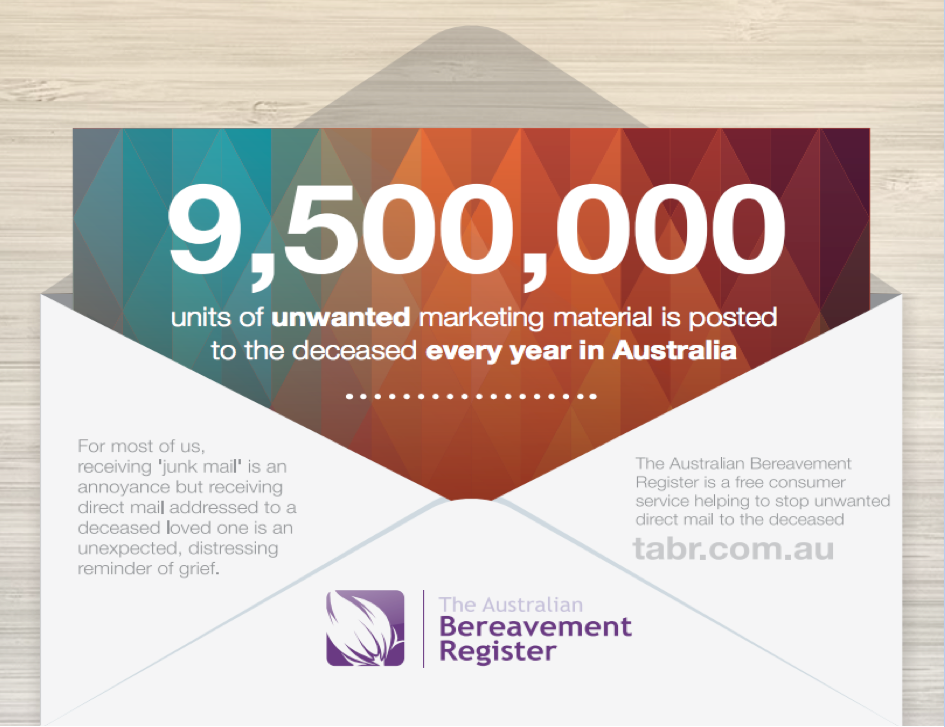Some 20 years ago, Rob Edwards (CEO of ADMA at the time) was featured in Australian Database Marketing Magazine. In the article, he says that Australia’s ability to keep databases current is very poor. Two decades later, this is unfortunately still the case.
Sending mail to the deceased or those who have moved
To make matters worse, those who have passed away continue to receive an average 68 items of promotional mail in the 12 months following their death. As a result, a staggering 9.5 million pieces of unwanted mail are sent out annually.
Sending out such mail is a considerable waste of budget and resources. In fact, research has shown misaddressed mail is costing Australian businesses an estimated $93 million dollars per year.
More importantly, sending mail to the deceased is distressing and offensive to the bereaved. Such actions are irresponsible and negatively impact a company’s reputation.
What can be done about it
Results from a 2013 ADMA Forum survey conducted by Marketsoft showed that 74 per cent of marketers believed their own data was not of ‘good’ or ‘great’ quality, and 11 per cent said that data quality was a ‘major problem’.
To improve the situation, there are a number of suppression file products in Australia that marketers can use. Most noteworthy are The Australian Bereavement Register (TABR) and the Gone-away Left Address (GLA) suppression file.
Since TABR was launched in 2012, it has become one of the most welcomed initiatives to hit the direct marketing industry. In just two years, it has captured over 400,000 records on file. In comparison, the ADMA deceased persons file comprises only 18,000 records.
Saving dollars and improving return on investment (ROI)
When TABR and GLA filter data, 1-1.5 per cent of records are found to comprise deceased persons. Furthermore, 7-9 per cent comprise relocated persons. Overall, these figures mean that 8-11.5 per cent of names on the majority of mailing lists are unusable.
For businesses looking to save marketing dollars, a simple ROI calculation is all that’s needed to justify the cost of suppression file screening prior to a campaign.
Other benefits to using a bereavement and/or relocation register
Saving money and improving ROI are not the only two benefits of using file suppression products. Implementing a screening process limits potential damage to brand image caused by irresponsible data practices.
Additionally, from an industry standpoint, ensuring the accuracy of lists enhances the credibility of the direct mail industry. The use of suppression lists also ensures businesses comply with the Australian Privacy Act and helps to stop identity fraud.
The TABR goes through a unique validation process based on fact, not assumption, so businesses can rest assured data is as reliable as possible. Most records are captured within 14 days following a death. Information is updated daily and released monthly.
For more information, call us today on 02 9340 7019 or view our TABR fact sheet on the Conexum website.











